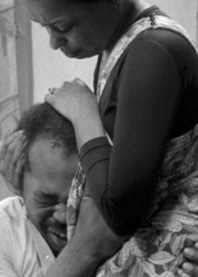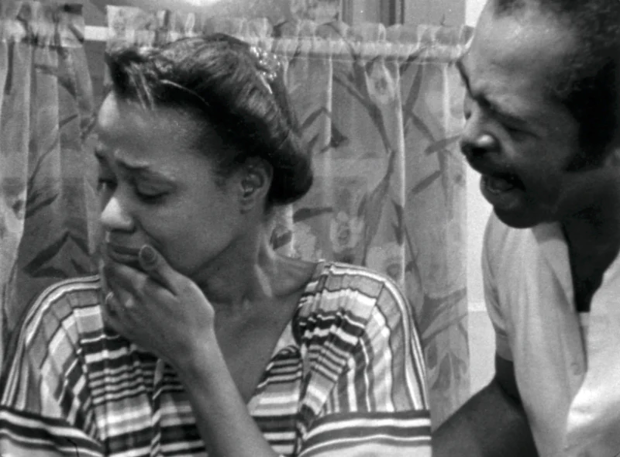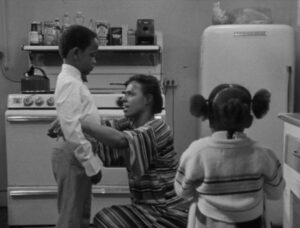
I first saw Bless Their Little Hearts on the Criterion Channel at the beginning of the pandemic in 2020. It absolutely devastated me emotionally, even more so than the film Charles Burnett wrote and directed five years prior to this, called Killer Of Sheep, which is one of the major films of the L.A. Rebellion film movement. Charles Burnett wrote Bless Their Little Hearts and was also the cinematographer, but it was directed by Billy Woodberry, who unfortunately has never directed another feature film after this one.
When I started my YouTube channel a few months later (check us out right here) which is dedicated to exploring cinema, I decided to review the film and found it as equally devastating the second time.
As a way to celebrate Black History Month, it felt like it was time for a repeating viewing of the film. I kept putting off seeing it again because of how hard it is to take emotionally, but I knew it would be just as, if not more rewarding to see again, and I was right.
The film is about an African American family of five living in a neighborhood called Watts in Los Angeles who are struggling to survive. Charlie Banks (played brilliantly by Nate Hardman) has been out of work for some time and we see the toll it takes on him and his family emotionally as he goes out day after day to look for work. His wife Andais Banks (played to near perfection by Kaycee Moore) struggles at times to get out of bed, as the emotional toll of poverty has hit deep.
What drew me into the film so much is that it’s all about the characters and how they interact. It’s not so much what they’re saying, it’s more about how they behave.
When Andais and Charlie go to bed they sleep with their backs to each other. Charlie wants to put his arm around his wife, but decides not to. When Charlie is shaving in the washroom he closes the faucet on the sink so tight that his daughter can’t even open it. He puts all of his feelings of sadness and frustration right into that faucet as a way to release his feelings. His wife does a similar thing by squeezing the handrail on the back of the seats on the bus. Moments like this speak volumes.
All of these feelings are also put on their children as they scold and lecture them for various things, like not cleaning up or not cutting their fingernails. It really shows how poverty can destroy families and relationships and how hard it is to endure and move on day by day.
Charlie eventually finds casual work as a day laborer, but nothing permanent. When he gets paid, there are moments of happiness, like when he brings ice cream home for the children. However, as a way to escape his troubles, he has an affair. His wife finds out and this leads to a near violent confrontation between the two. This explosive fight is so real that it is hard to believe these are actors.
It is a tragedy that Nate Hardman and Kaycee Moore didn’t have bigger careers because their performances in this film are about as perfect as acting can get.
To be honest, the whole film feels like it was caught on camera by accident. This Black & White, documentary style approach, gives the film a real gritty and rough look. The soundtrack with its various jazz and blues numbers is simply incredible and is used at just the right moments and adds layers to the desperation and sadness that the characters are feeling.
While the film never mentions anything about racism explicitly, it’s obvious that the reason they live in this rough area in Los Angeles with their house in disrepair, and that Charlie has been out of work for so long, with the images of the factories where we envision him to have once worked have been torn away from the earth, is all because of the color of their skins.
Even though this is a film about black lives, their is plenty to relate to, such as being out of work, having a husband cheat on you, the toll poverty takes on families, and children having to bear witness to their parents depressed and beyond stressed out.
Film history often talks about the silent era, pre-code Hollywood movies, The Golden Age Of Hollywood, The French New Wave, Italian Neorealism, The 70’s New Hollywood Movement, but not enough attention is given to the L.A. Rebellion Film Movement. It’s a group of black filmmakers who all went to UCLA and made incredible movies about black lives.
If you are unfamiliar with the L.A. Rebellion, do yourself a favor and seek out as many movies as you can by the likes of Charles Burnett, Haile Gerima, Billy Woodberry, Julie Dash and many more, but thus far Bless Their Little Hearts is my personal favorite.
Bless Their Little Hearts is available to stream on the Criterion Channel now.

